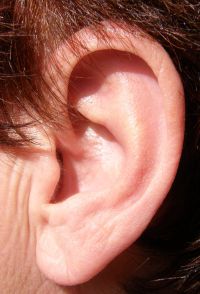Meniere’s disease is a syndrome first described by Prosper Meniere, a French doctor. The exact cause of this ailment is relatively unknown but this is common in the middle age and above but uncommon in children.
What is Meniere’s Disease?
Meniere’s disease is a disturbing disorder that affects the inner ear. The fluid of the inner ear increases thus resulting to raised pressure. When raised pressure is present in the ear, hearing is impaired, that is why people with Meniere’s disease encounter temporary or permanent hearing loss.
Aside from hearing loss, a patient also exhibit dizziness. Dizzy spells associated with Meniere’s disorder is not ordinary as they are usually of great intensity that a person feels that the room is spinning around him. But what are bothersome with Meniere’s syndrome are the vertigo episodes. Imbalance problems may affect the day to day activities of a sufferer.
This disorder occurs gradually and it is both common in men and women between 40 and 60 years of age. The severity of symptoms varies from each patient. Medications for vertigo are usually given but severe cases may require surgery.
What are the Causes of Meniere’s disease?
There are no exact causes for Meniere’s disease. However, the main culprit of the disorder is may be due to the abnormal composition of the fluid inside the inner ear. Normally, the inner ear has fluid inside the membranous labyrinth order to function properly. But when the fluid inside increases beyond the acceptable level, imbalance develops which may cause Meniere’s syndrome.
The reason why the fluid increased is also unknown but there are triggering factors that potentially alter the build up of fluid. Some triggers may include:
- Allergies
- Head injury
- Viral infection
- Abnormal blockage in the ear
What are the Symptoms of Meniere’s Disease?
Meniere’s disease is a chronic condition that may affect the daily activities of a patient. Here are some symptoms of Meniere’s disease:
Hearing loss is the primary symptom of this syndrome. Some cases are temporary but majority of patients will eventually have permanent hearing loss.
Tinnitus is also present in Meniere’s syndrome. It is a low-pitched buzzing or hissing sound in the ear. This is usually heard before vertigo episodes take place.
Vertigo is described as loss of balance. Person with Meniere’s may feel that the room is spinning at high speed and this may result to imbalance in walking and focusing is impossible. The vertigo episode usually lasts from two hours to twenty-four hours. Severe cases of vertigo may also experience nausea.
What are the Treatments for Meniere’s Disease?
 1. Medications
   Medications for vertigo are given to treat the symptoms of imbalance and dizziness.  Anti-vomiting medicines are also prescribed to lessen feeling of       nausea during vertigo attack.
Medications for vertigo are given to treat the symptoms of imbalance and dizziness.  Anti-vomiting medicines are also prescribed to lessen feeling of       nausea during vertigo attack.
2. Hearing Aid
   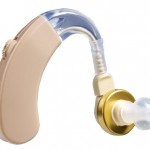 Hearing aid is recommended for those ear affected by the syndrome.  This will greatly improve any problems related to partial or permanent loss of        hearing.
Hearing aid is recommended for those ear affected by the syndrome.  This will greatly improve any problems related to partial or permanent loss of        hearing.
3. Low Sodium Diet
    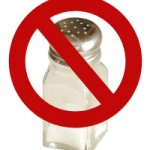 Low sodium diet is recommended to lessen fluid retention.  The minimum sodium intake should not be higher than 1,500 mg each day.
Low sodium diet is recommended to lessen fluid retention. Â The minimum sodium intake should not be higher than 1,500 mg each day.
4. Avoid Caffeine
     Caffeine found in tea and coffee contains stimulant, and they may worsen the Meniere’s symptoms. The tinnitus can be heard louder if caffeine is not        avoided in your diet.
Caffeine found in tea and coffee contains stimulant, and they may worsen the Meniere’s symptoms. The tinnitus can be heard louder if caffeine is not        avoided in your diet.
 5. Avoid MSG
      MSG is another kind of sodium that may increase fluid retention.  It is usually found in already chips and prepacked foods.
MSG is another kind of sodium that may increase fluid retention. Â It is usually found in already chips and prepacked foods.
6. Middle Ear Injections
    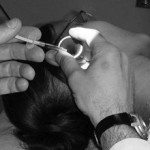 Middle ear injections are given to reduce vertigo symptoms.  But these injections may cause side effect like loss of hearing.  Ask first your  doctor if        middle ear injection is safe for you.
Middle ear injections are given to reduce vertigo symptoms.  But these injections may cause side effect like loss of hearing.  Ask first your  doctor if        middle ear injection is safe for you.
7. Rest
                       
   Rest is recommended during and after attack.  This will lessen your chance of getting hurt and falling down while having vertigo episode.  Avoid also       driving and working to avoid any accident.
8. Meniett pulse generator
   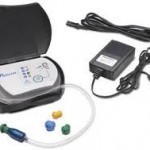 Meniett pulse generator is the newest device use to treat vertigo.  The ventilation tube applies pressure to the ear to normalize the flow of fluid             inside.  This is normally done two to three times a day and can be done at home.  However, this treatment is quite expensive compared to other            medications.
Meniett pulse generator is the newest device use to treat vertigo.  The ventilation tube applies pressure to the ear to normalize the flow of fluid             inside.  This is normally done two to three times a day and can be done at home.  However, this treatment is quite expensive compared to other            medications.
 9. Labyrinthectomy
   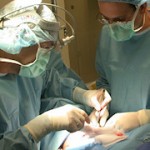 Labyrinthectomy is a surgical procedure that will remove a part of inner ear.  This is recommended if Meniere’s disease do not respond to medications.    But this procedure may result to permanent hear loss.
Labyrinthectomy is a surgical procedure that will remove a part of inner ear.  This is recommended if Meniere’s disease do not respond to medications.    But this procedure may result to permanent hear loss.
Meniere’s disease is classified from mild to severe case. Severe case of Meniere’s syndrome can be a life long disease that needs proper medical care. Consult your medical health provider to evaluate your condition.
